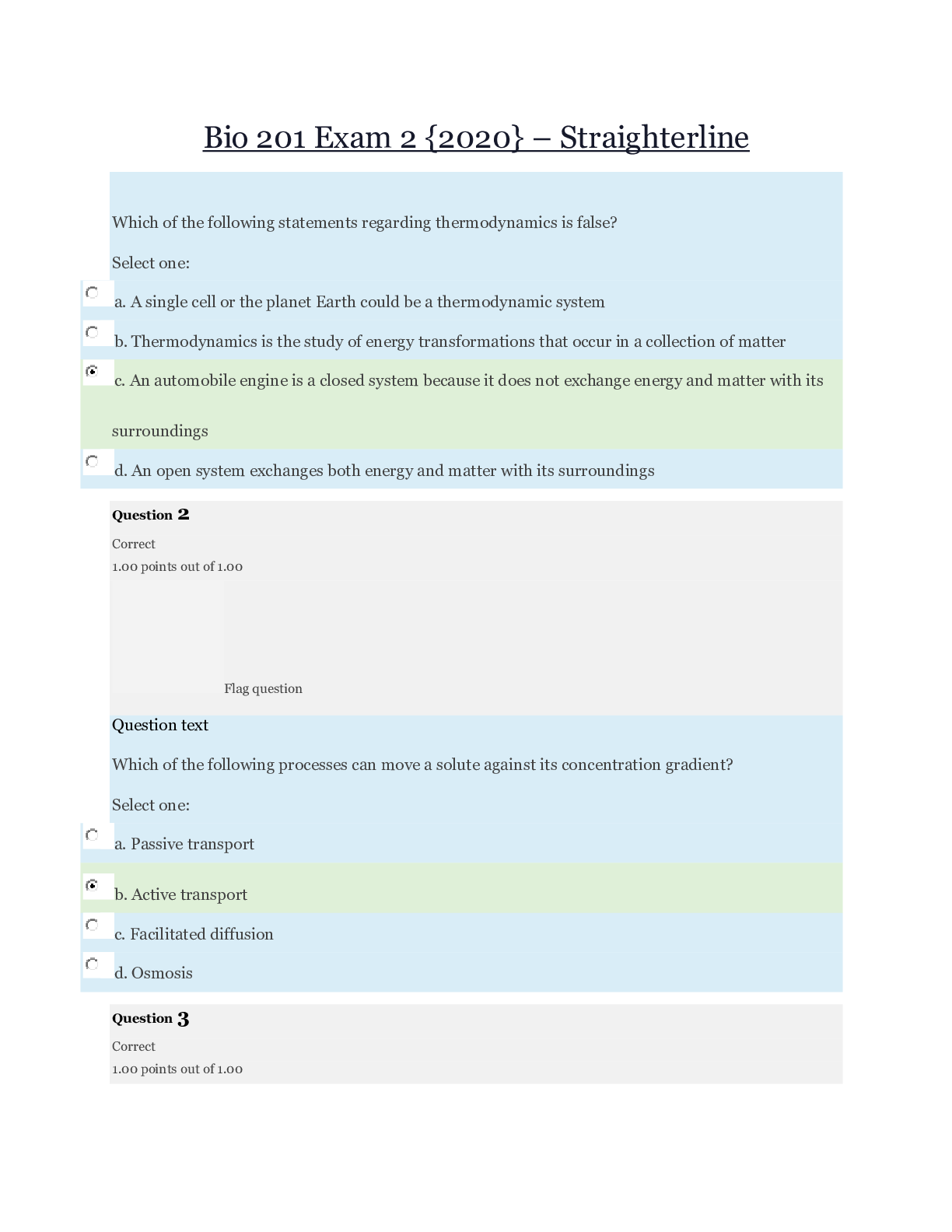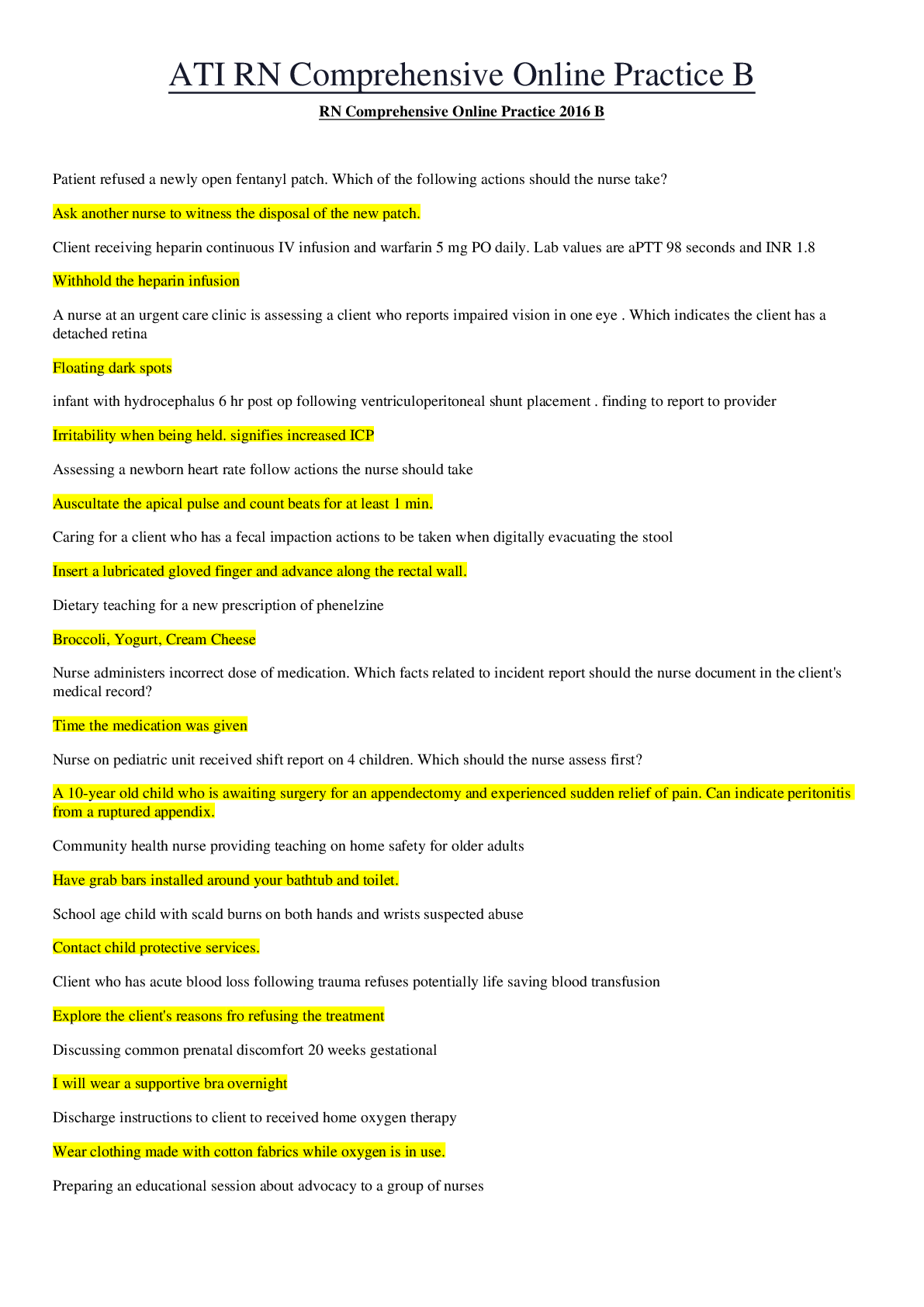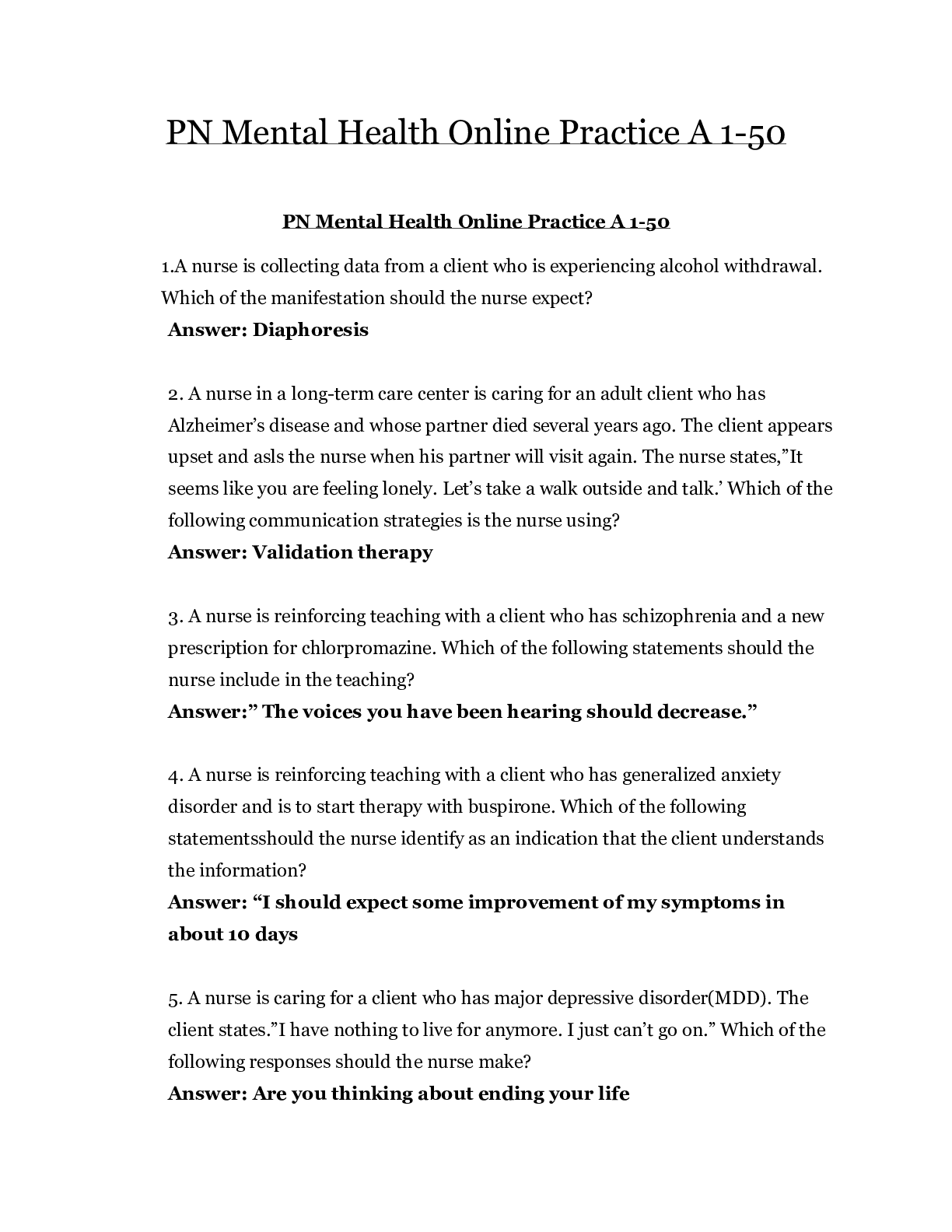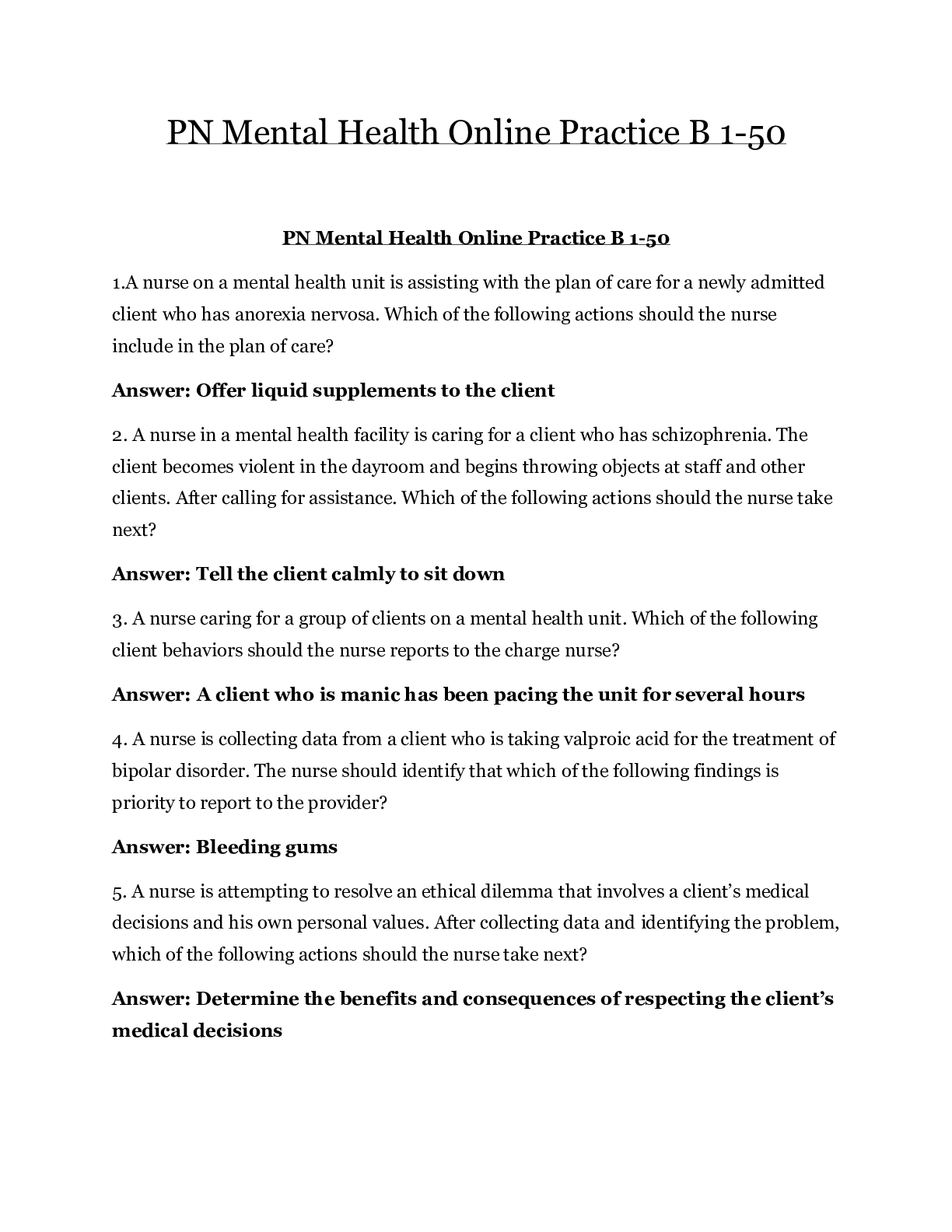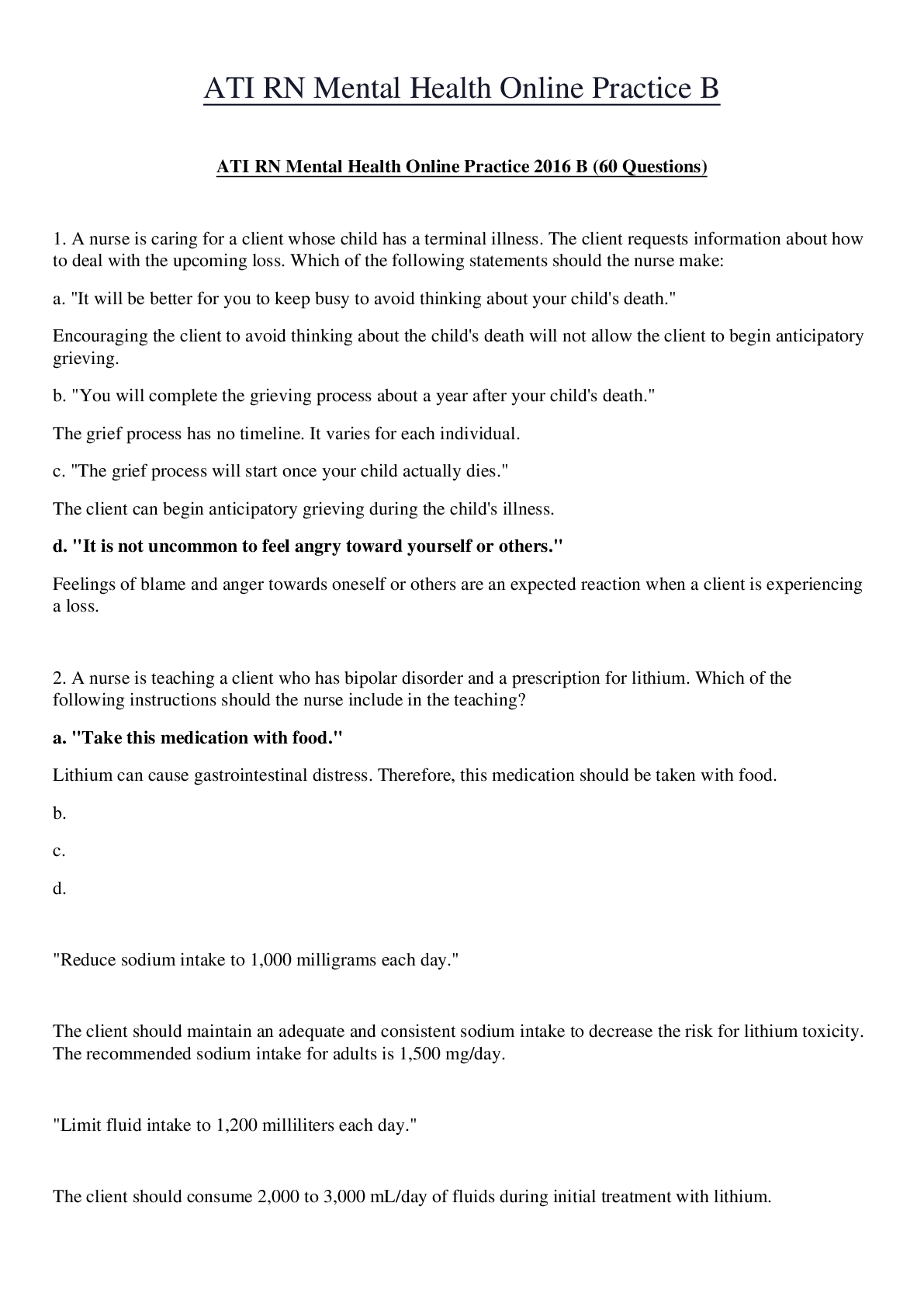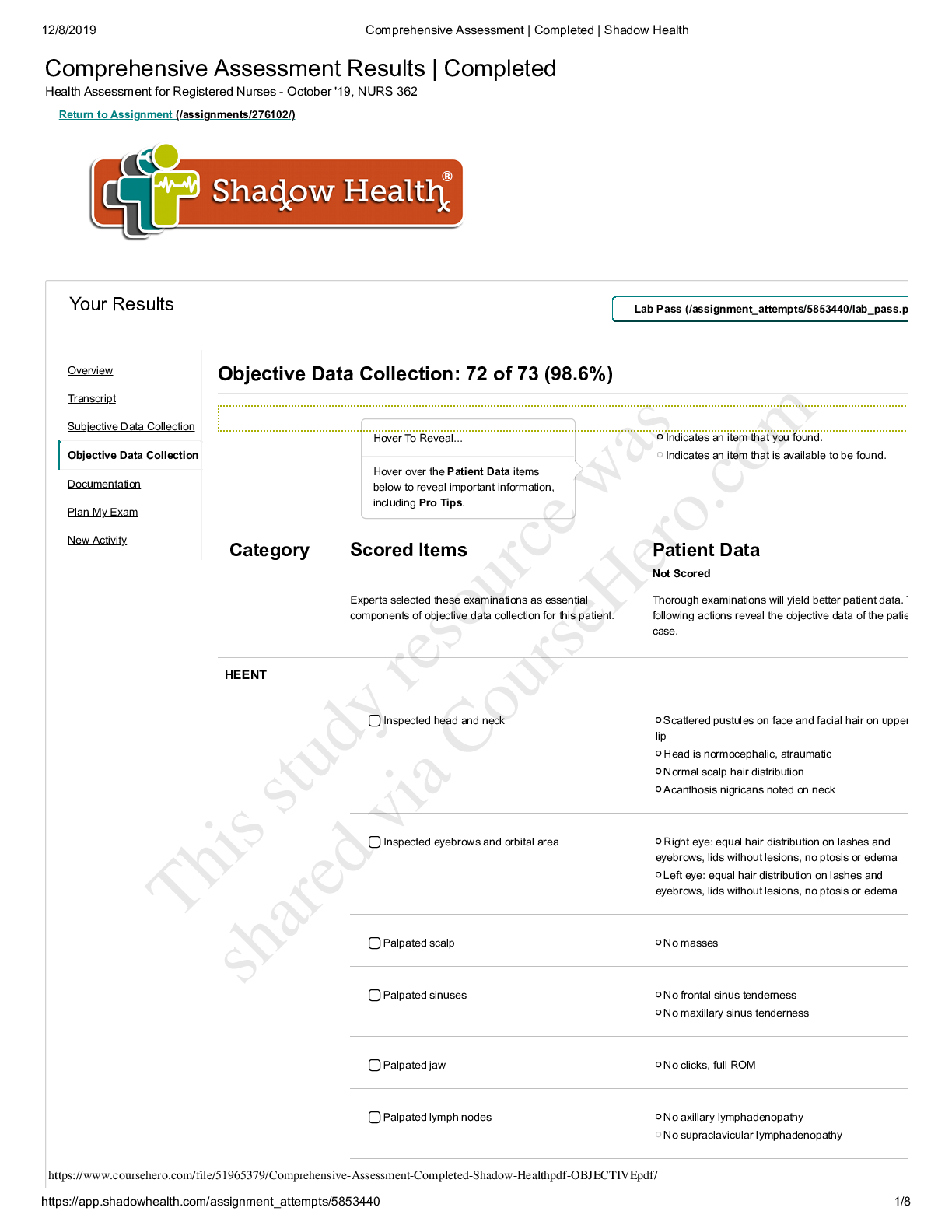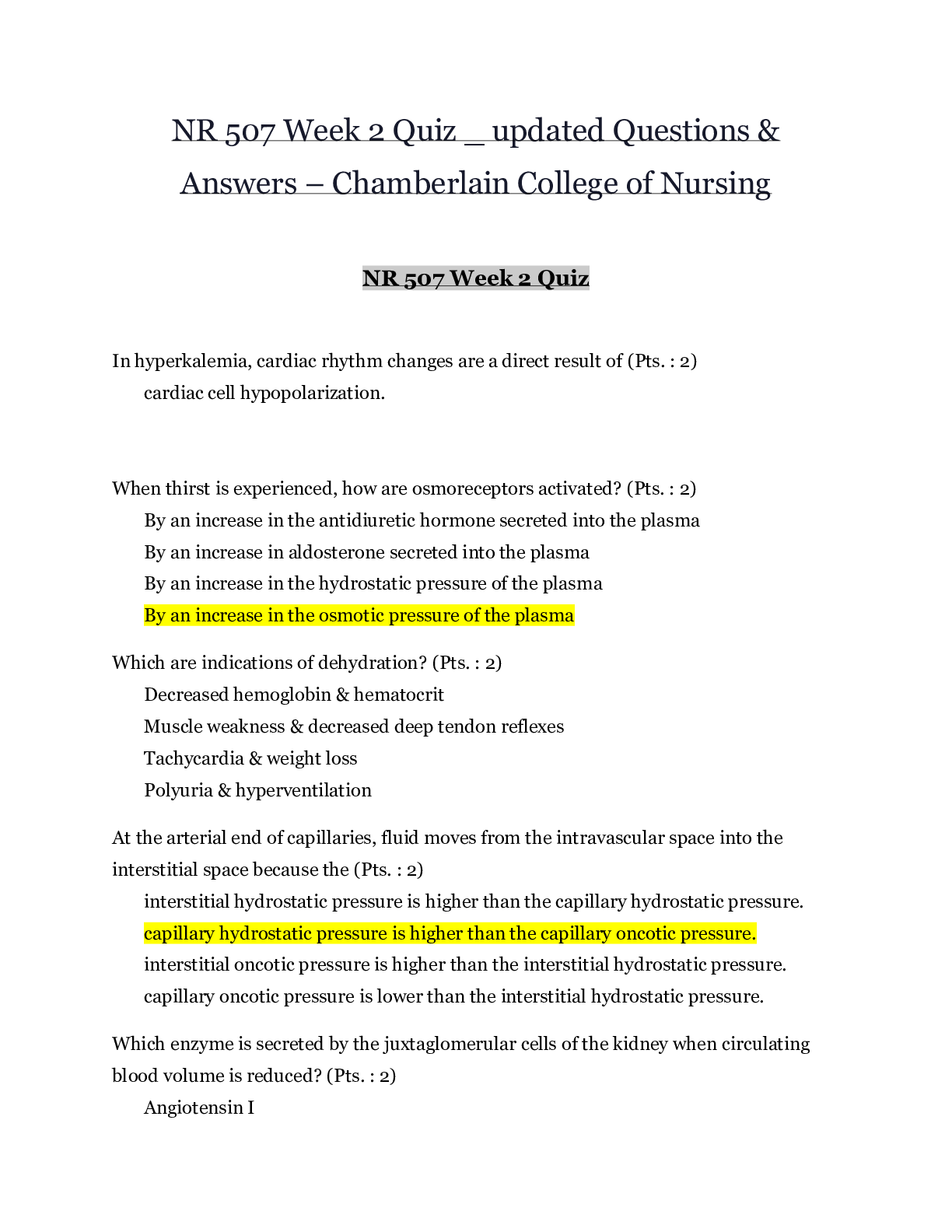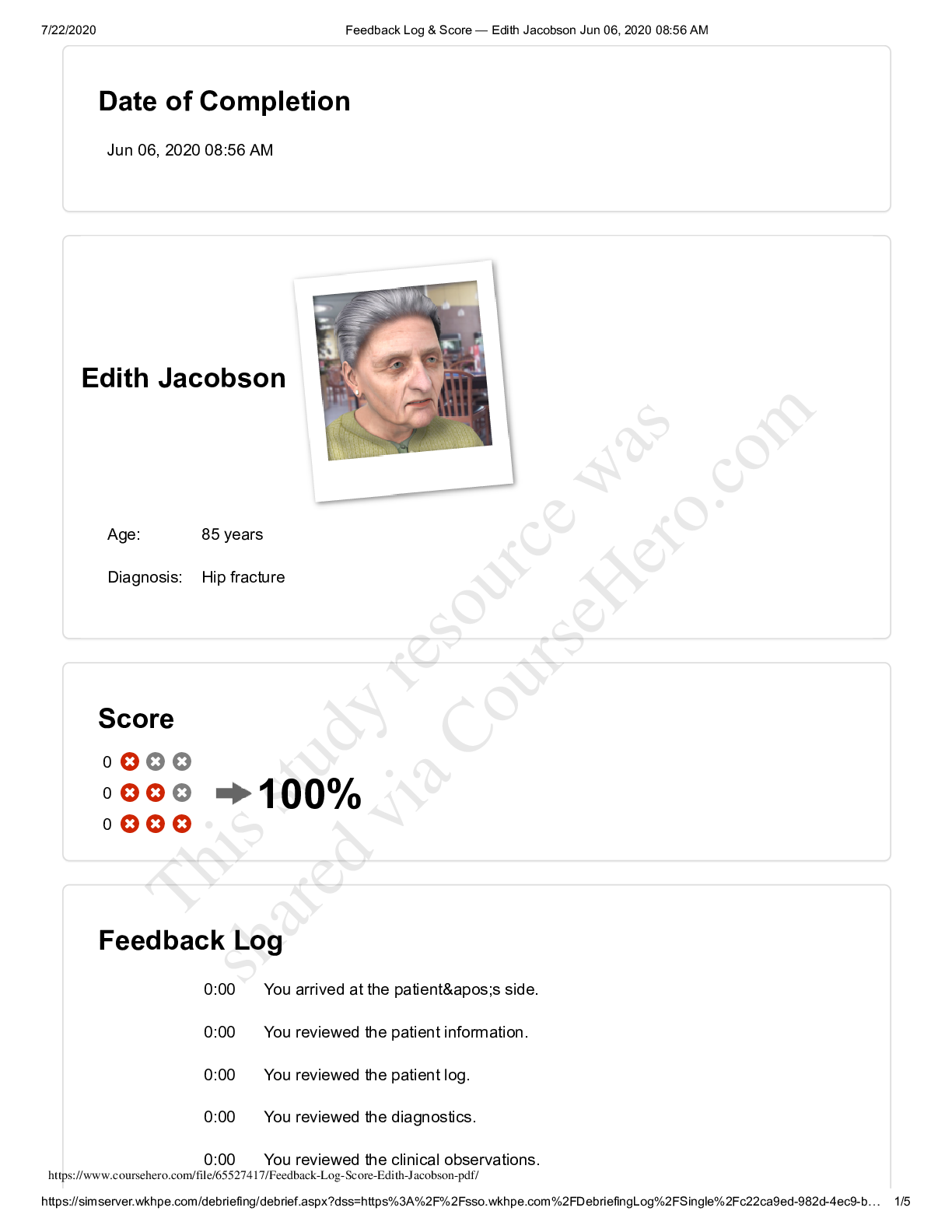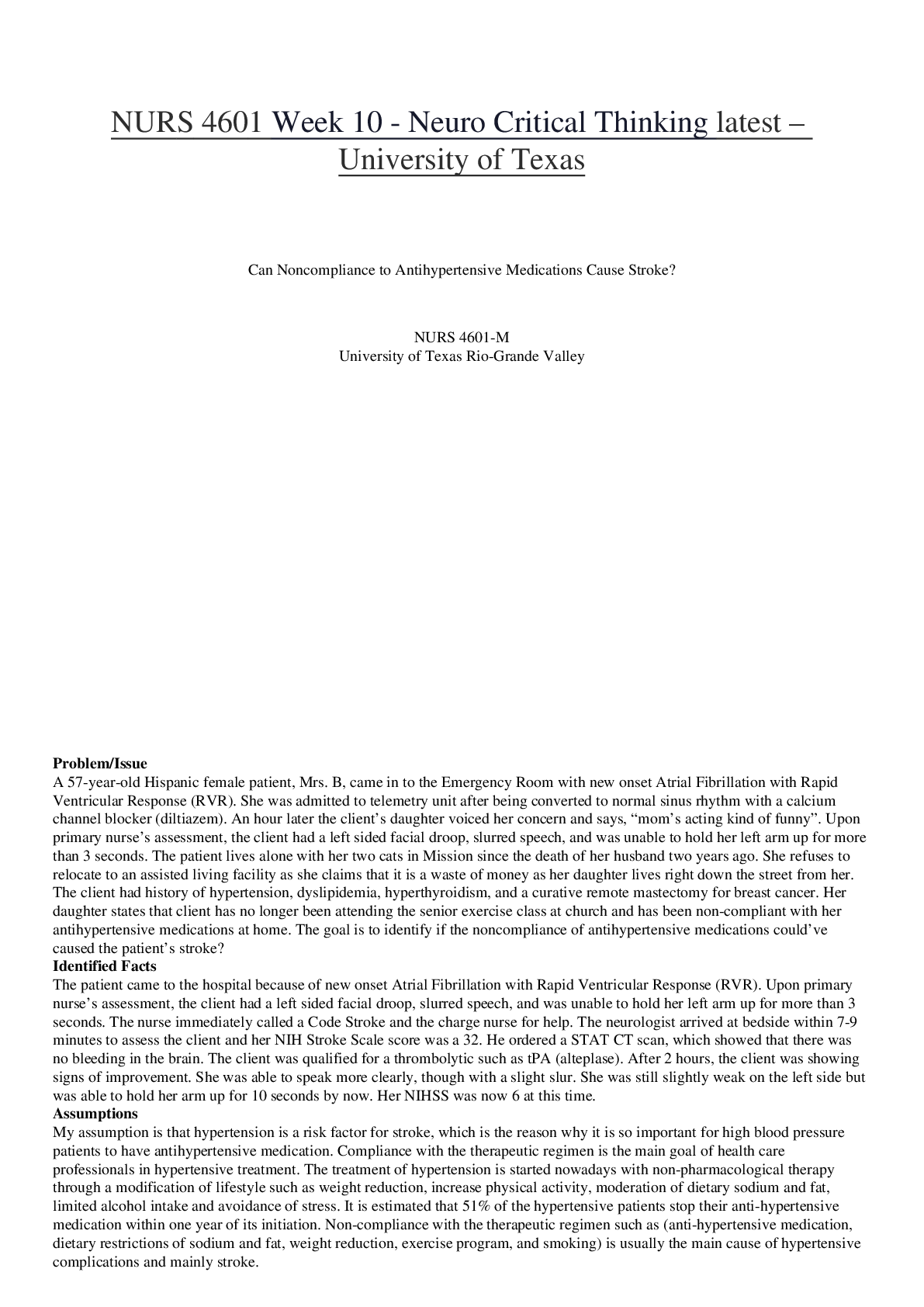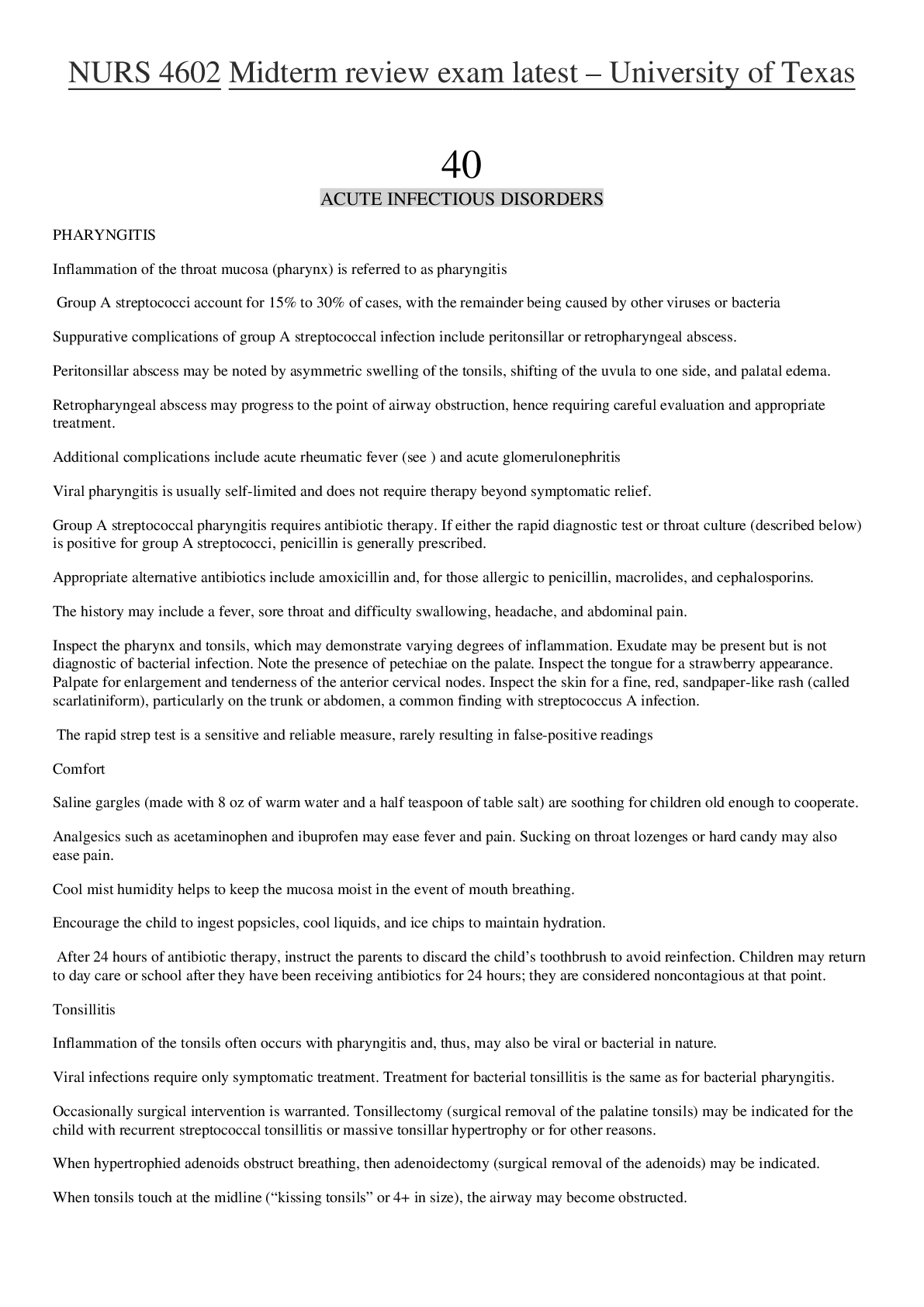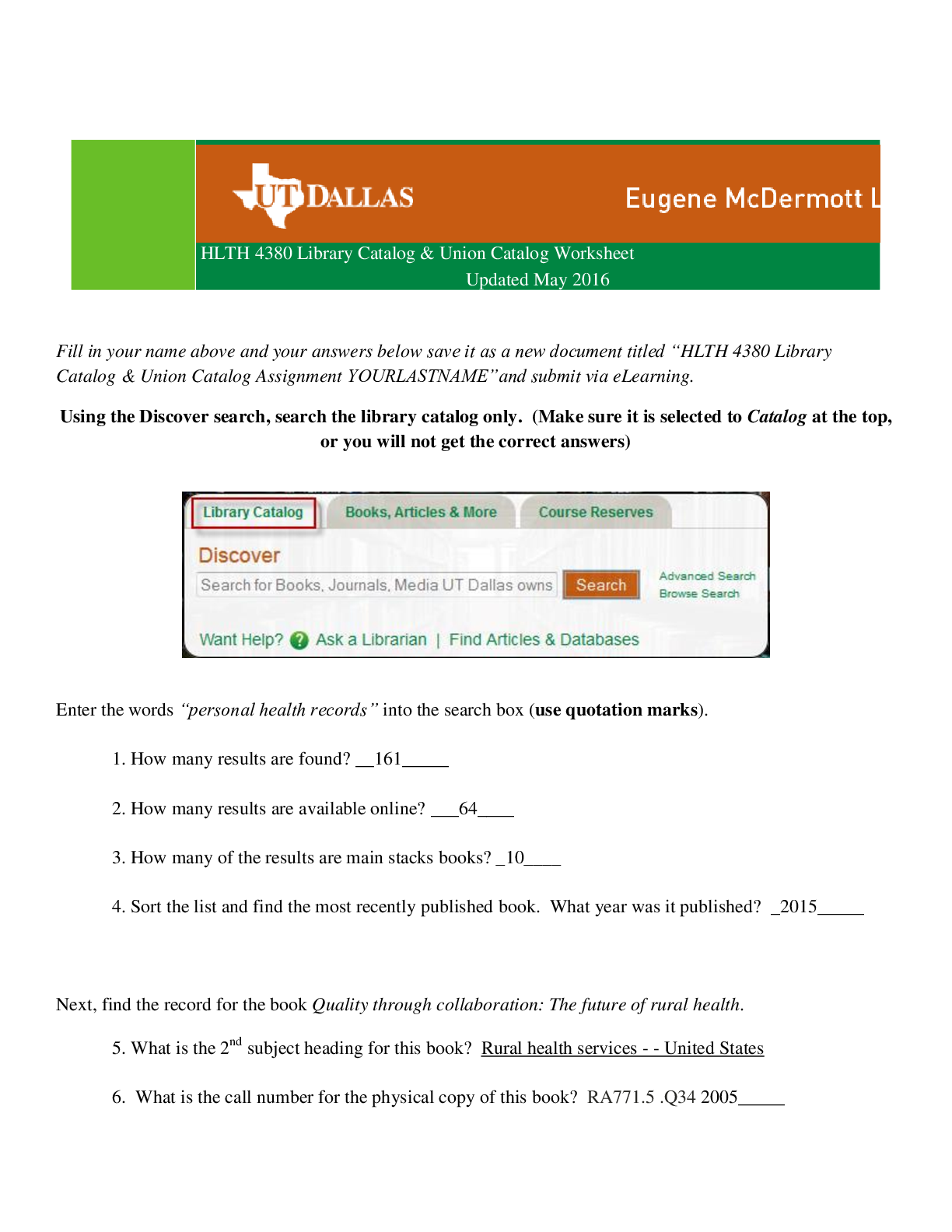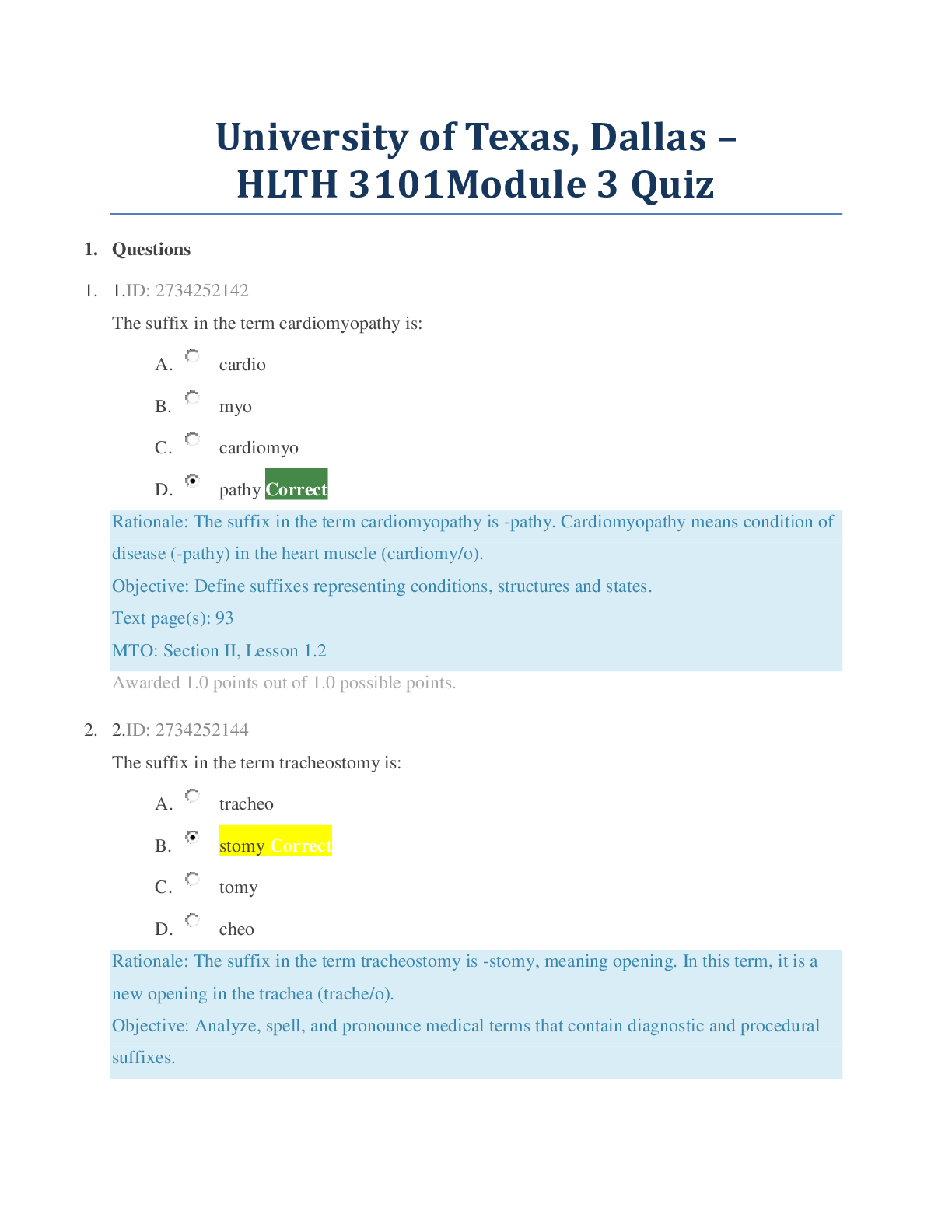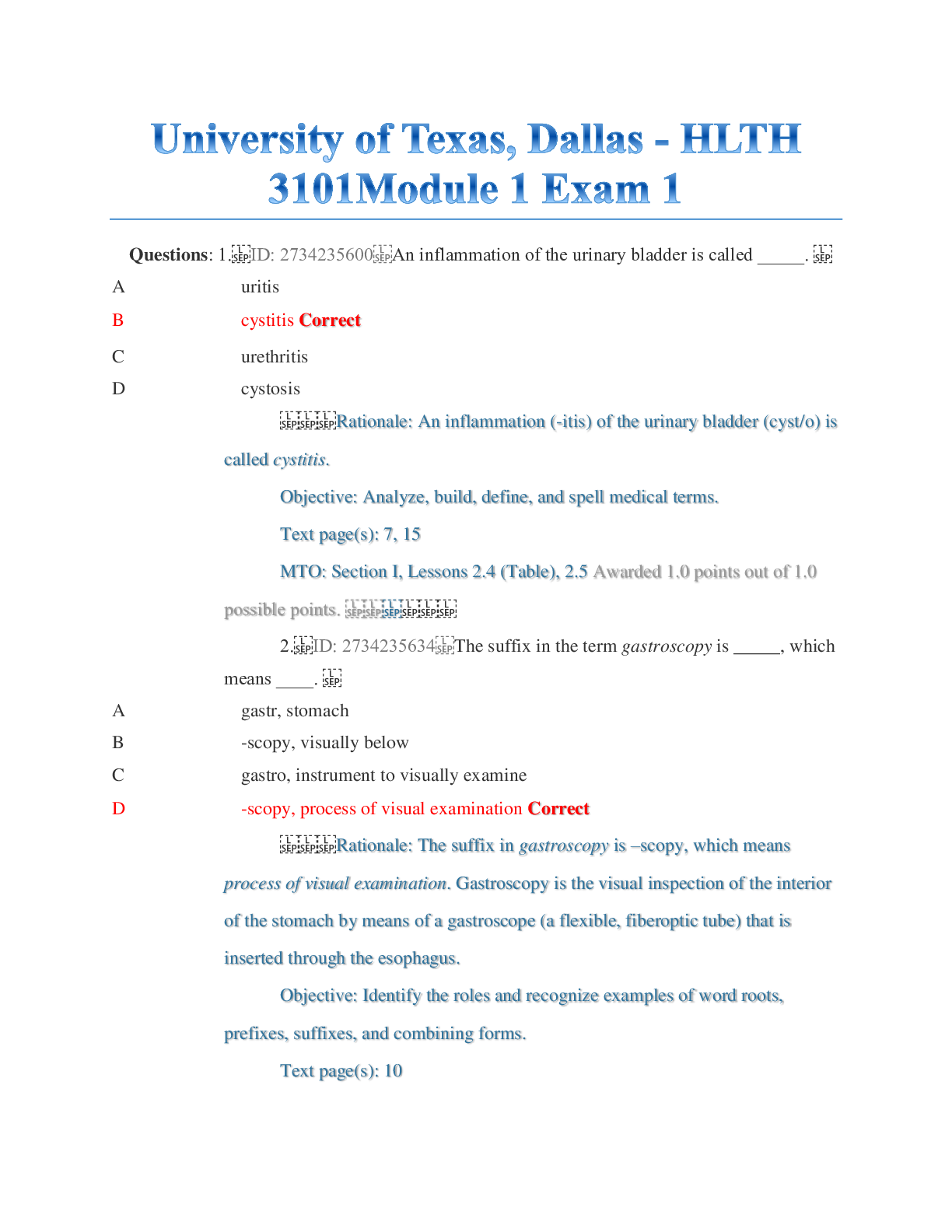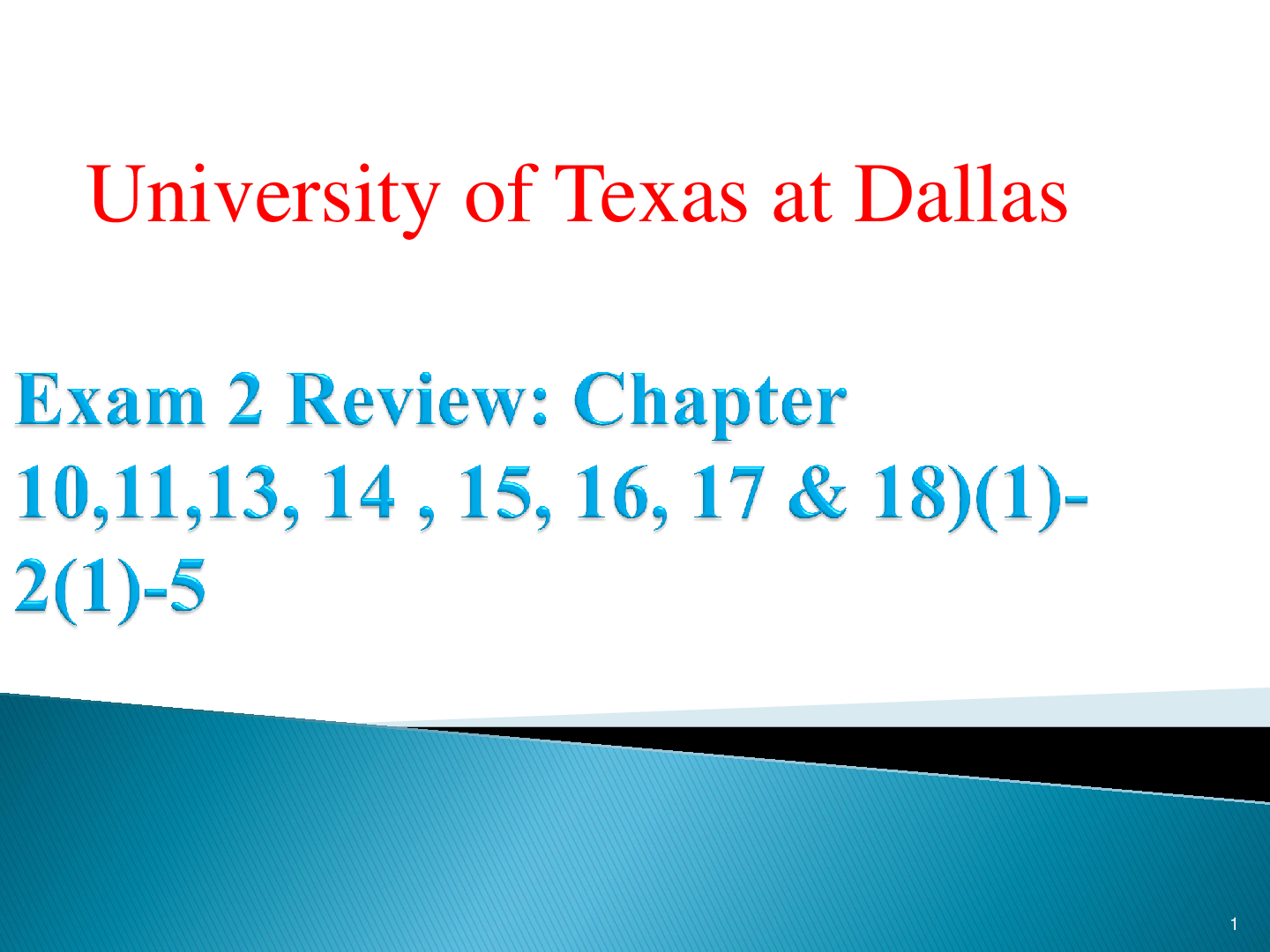Psychology > EXAM > NURS 3481 Psych Test 2 Final – University of Texas | NURS3481 Psych Test 2 Final – University of (All)
NURS 3481 Psych Test 2 Final – University of Texas | NURS3481 Psych Test 2 Final – University of Texas
Document Content and Description Below
NURS 3481 Psych Test 2 Final – University of Texas Chapter 13 (Bipolar & Related Disorders) 1) Assess a patient with mania for (a) mood, (b) behavior, and (c) thought processes, and be alert to... possible dysfunction. People with mania are the happiest, most excited, and most optimistic people you could meet. They feel euphoric and energized; they don’t sleep/eat and constantly talks. They take horrific chances and do foolish things. As the disorder intensifies, psychosis ensues and people with mania begin to hear voices, sometimes the voice of God. 2) Formulate three nursing diagnoses appropriate for a patient with mania and include supporting data. 1. Risk for Injury (hyperactivity, locomotion into unauthorized spaces, pacing, poor judgment.) 2. Sleep Deprivation (anxiety, agitation, inability to concentrate, restlessness). 3. Defensive Coping (poor reality testing, grandiosity, denial of problems). 3) Explain the rationales behind five methods of communication that may be used with a patient experiencing mania. • Use firm and calm approach (structure and control are provided, feelings of security can result) • Use short and concise explanations and statements (short attention span) • Remain neutral; avoid power struggles and value judgments (patient can use inconsistencies for arguing and escalation) • Be consistent in approach and expectations (minimize potential for manipulation) • Firmly redirect energy into more appropriate and constructive channels (distractibility is the nurse’s most effective tool with mania) 4) Teach a classmate at least four expected side effects of lithium therapy. I. Fine hand tremor II. Polyuria III. Mild Thirst IV. Mild nausea/general discomfort V. Weight Gain 5) Distinguish between signs of early and severe lithium toxicity. Lithium Levels: Maintenance Level = 0.4 – 1.3 Early Toxicity = 1.5 – 2.0 Advanced Toxicity = 2.0 – 2.5 Early S/S: N/V, Diarrhea, thirst, lethargy, slurred speech, muscle weakness, and fine hand tremors. Severe Toxicity: Ataxia, giddiness, serious electroencephalographic changes, blurred vision, clonic movements, large output of dilute urine, seizures, stupor, severe hypotension, coma. Death is usually secondary to pulmonary complications. 6) Write a medication care plan specifying five areas of patient teaching regarding lithium carbonate. ▪ Take drug after current episode is over ▪ Monitor lithium levels very closely ▪ Eat normal diet (low sodium can lead to lithium retention) ▪ Know S/S of lithium toxicity - - - - - - - - - - - - - - - - - - - - - Mood/Anxiety disorders, antisocial behaviors, histories of conduct or oppositional disorders as adolescents Hep C, DM, Cardiovascular disease, HIV, & pulmonary disorders 1. Name the common classification of substances used. Pg 413 Table 22-1 • Alcohol • Caffeine • Cannabis • Hallucinogen • Inhalant • Opioid • Sedative, Hypnotic, Anxiolytic • Stimulant • Tobacco • Other Substances 2. Identify patterns of substance use. Experimental, Recreational, Situational, Intensive, Dependent 3. Apply the nursing process to caring for an individual who is using substances. Pg 423 Table 22-8 · Chapter 27 Anger, Aggression, and Violence 1.) Compare and contrast three theories that explore the determinants for anger, aggression, and violence. Anger: an emotional response to frustration of desires, a threat to one’s needs (emotional/physical), or a challenge. Normal emotion. Aggression: an action or behavior that results in a verbal or physical attack Violence: always an objectionable act that involves intentional use of force that results in, or has the potential to result in, injury to another person 2.) Compare and contrast interventions for a patient with healthy coping skills with those for a patient with marginal coping behaviors. Healthy Coping: finding ways to reestablish or substitute similar means of dealing with hospitalization, validation Marginal Coping: begin with attempts to understand and meet the patient’s needs, use of distractions, teaching coping skills 3.) Apply at least four principles of de-escalation with a moderately angry patient. Pg. 521 Box 27-2 • Maintain the patient’s self-esteem & dignity • Maintain calmness • Assess the patient & the situation • Identify stressors & stress indicators 4.) Describe two criteria for the use of seclusion or restraint over verbal intervention. Pg 524 Box 27-3 • To protect the patient from self-harm • To prevent the patient from assaulting others 5.) Discuss two types of assessment and their value in the nursing process. Pg 518 • Assess patient for risk for violence • Assess for patient activity (delusional, hyperactive, impulsive) 6) Role-play with classmates by using understandable but unhelpful responses to anger and aggression in patients; discuss how these responses can affect nursing interventions. Pg 525 Box 27-4 [Show More]
Last updated: 1 year ago
Preview 1 out of 29 pages
Instant download
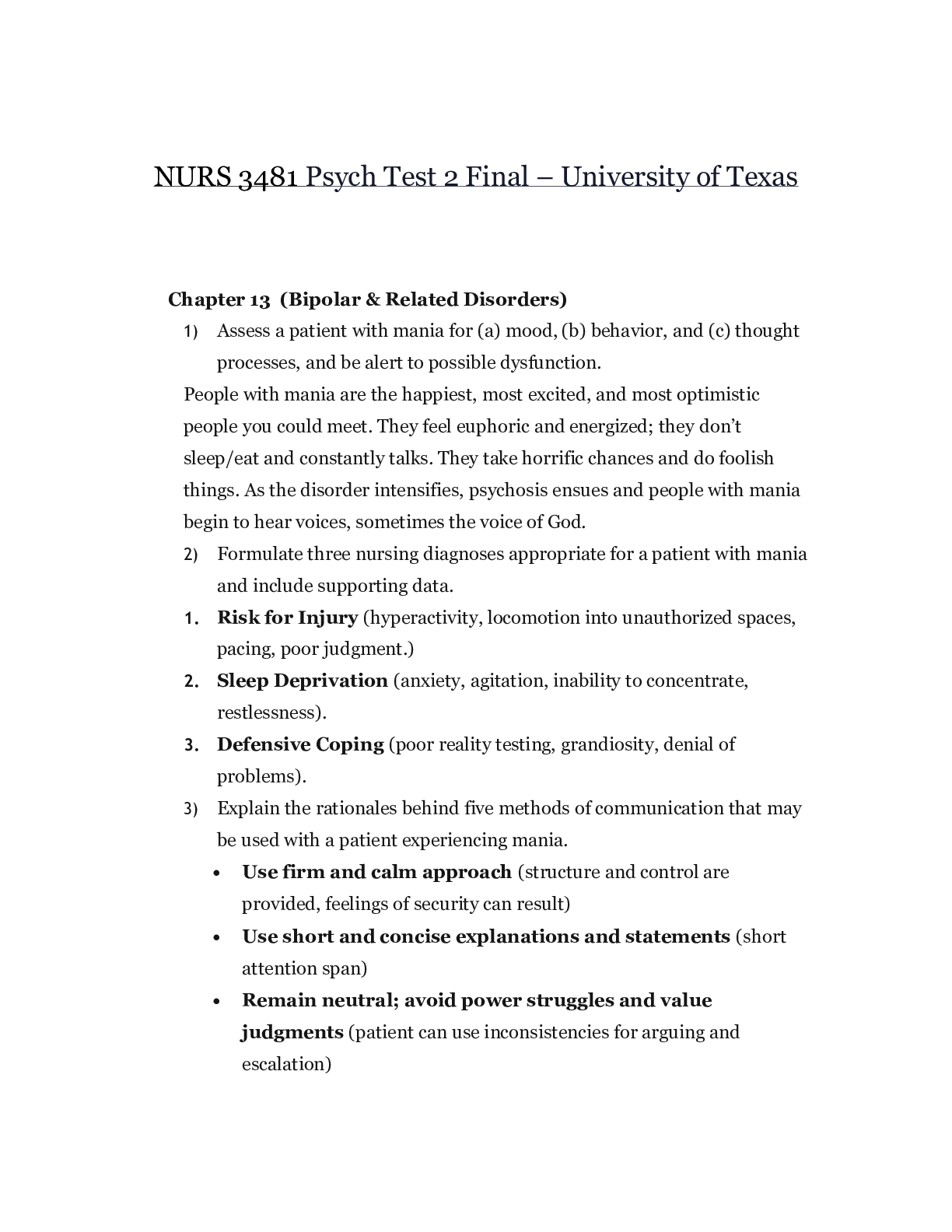
Buy this document to get the full access instantly
Instant Download Access after purchase
Add to cartInstant download
Reviews( 0 )
Document information
Connected school, study & course
About the document
Uploaded On
Aug 06, 2020
Number of pages
29
Written in
Additional information
This document has been written for:
Uploaded
Aug 06, 2020
Downloads
0
Views
44

